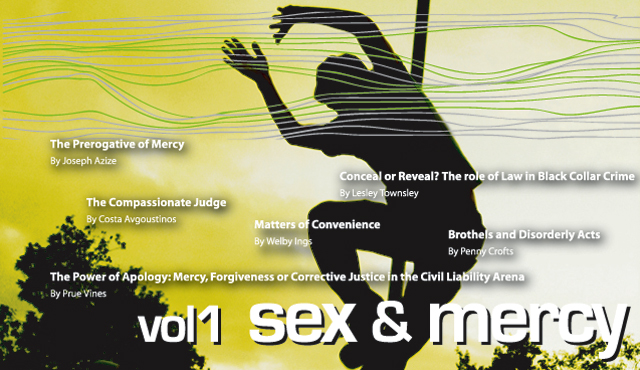The Power of Apology: Mercy, Forgiveness or Corrective Justice in the Civil Liability Arena (2007) Vol 1 Art 5
Main Article Content
Abstract
The recent rash of apology-protecting legislation in tort law in the common law world raises interesting questions about why apologies are so important. The function of apologies within society generally is not absolutely clear. It is even less clear what their function in relation to civil liability is and how the relationship between the law and apologies works. It is fairly clear that legislators desire apologies to reduce litigation on the basis of some naïve view that that is what people really want and that the common legal advice to never apologise is actually very bad for society in general. In this paper I argue first that defining apologies is crucial to determining their function, that apologies have multiple functions and that one of them is corrective justice. Another is to mediate relationships and to achieve reconciliation or healing through a process of apology, forgiveness and redemption. When should an apology be protected and why can only be answered if we have a real understanding of both the psychological and sociological effects of apologies. In particular we need to understand the interactions of different types of norms, including norms of civility, legal norms, professional ethics and so on. The article attempts to go some way towards this understanding.
Article Details
Issue
Section
Articles
Copyright in the manuscript remains with the author(s). The author(s) grants the University of Technology, Sydney a licence to exercise any exclsuive rights of the copyright owner required to publish, distribute and advertise PublIc Space: the Journal of Law and Social Justice.
